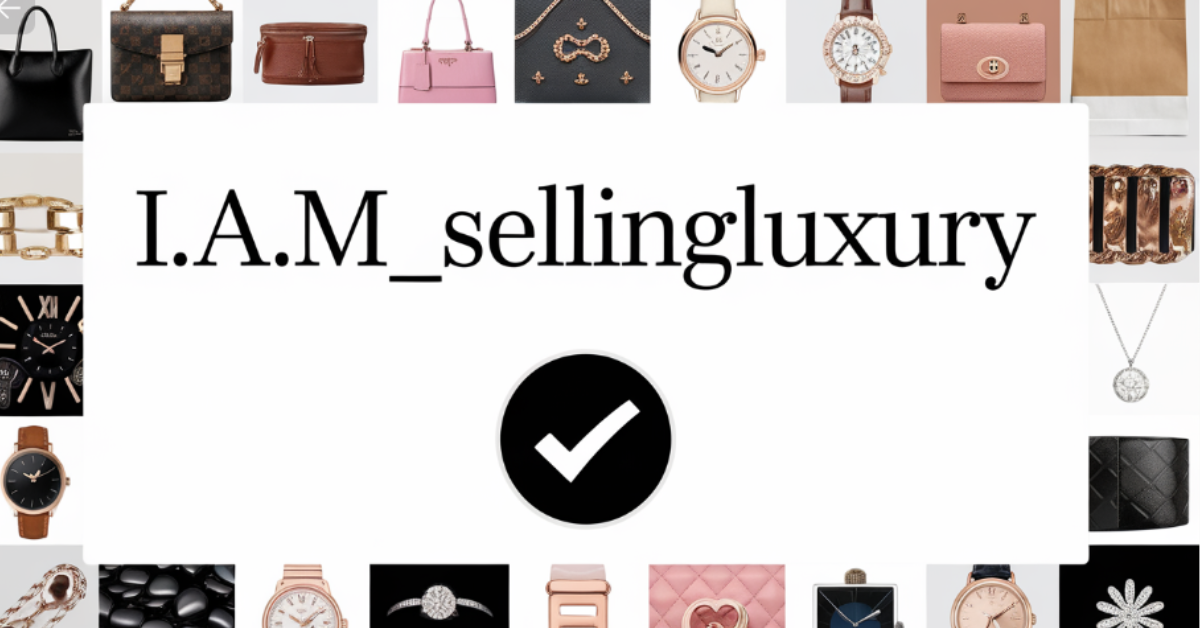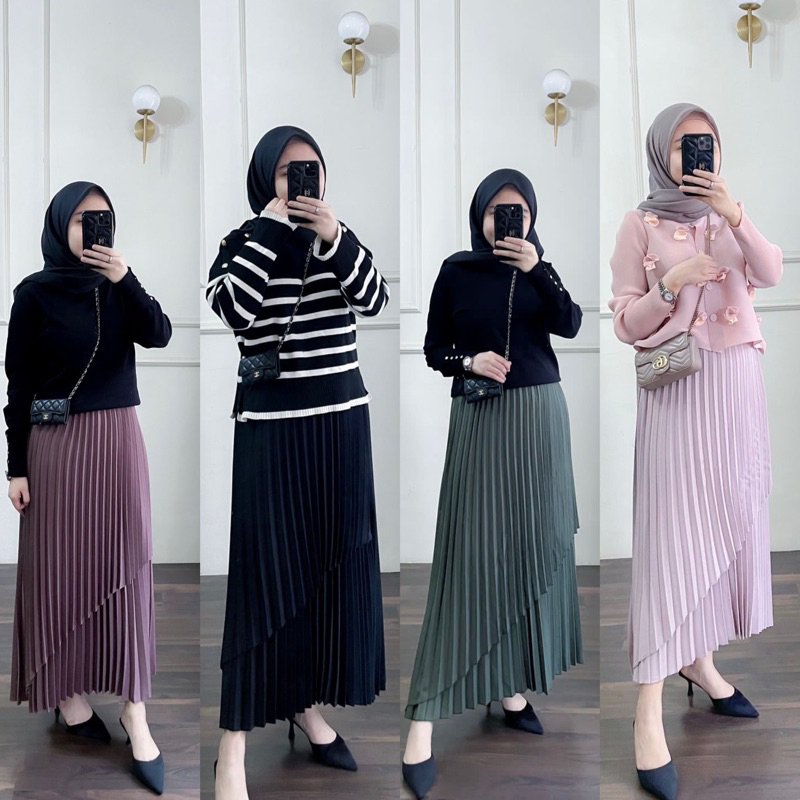The Ultimate Guide to Selling Luxury Goods Online: i.a.m_sellingluxury
The luxury market has seen significant growth in recent years, especially in the online realm. If you’re considering venturing into selling luxury goods, platforms like i.a.m_sellingluxury provide unique opportunities for sellers to connect with affluent buyers worldwide. This article will explore the ins and outs of selling luxury items online and provide tips and strategies for achieving success.
What Are Luxury Goods?
Luxury goods are high-end, often expensive products that offer exclusivity, craftsmanship, and superior quality. These items typically include designer clothing, fine jewelry, high-end watches, premium electronics, and rare collectibles. The allure of luxury products lies in their quality, heritage, and the sense of status they convey to consumers.
Why the Luxury Market is Booming Online
Changing Consumer Behavior
In recent years, affluent consumers are increasingly purchasing luxury goods online. The convenience, variety, and ease of shopping from home have made e-commerce a prime destination for luxury shoppers. Furthermore, online platforms can cater to a global market, giving sellers access to buyers from all over the world.
Shifting Trends: Sustainability and Ethics
Consumers are also becoming more conscious of sustainability and ethical sourcing when buying luxury goods. With this in mind, platforms like i.a.m_sellingluxury often encourage transparency and promote brands that follow ethical practices, which aligns with the values of today’s luxury buyer.
How i.a.m_sellingluxury Supports Sellers
A Secure Platform for Authentic Luxury Goods
When selling luxury goods, one of the top concerns for both sellers and buyers is authenticity. i.a.m_sellingluxury provides secure selling tools to verify and authenticate products, ensuring that sellers can confidently market their items as genuine. The platform also offers secure payment systems to protect both parties in the transaction.
Global Reach for Luxury Sellers
One of the major advantages of selling on a platform like i.a.m_sellingluxury is the access to an international audience. Luxury buyers are not confined by geographic boundaries, and e-commerce opens doors to affluent customers worldwide. Whether you’re selling a rare handbag, an exclusive watch, or vintage jewelry, you can attract buyers from across the globe.
Targeted Marketing to Affluent Consumers
Reaching the right consumer base is crucial when selling luxury items. i.a.m_sellingluxury uses targeted marketing strategies to help sellers connect with affluent buyers who are specifically looking for high-end goods. This ensures that your products are presented to the right audience, increasing the likelihood of sales.
Tips for Successfully Selling Luxury Goods Online
1. Build a Strong Online Presence
Your online presence is the first impression potential buyers will have of your brand. Invest in creating a polished, user-friendly website or store that reflects the high quality of the products you sell. Ensure that your site is optimized for mobile devices, as many consumers browse and shop on their phones.
2. Highlight the Value and Exclusivity
Luxury goods are all about exclusivity and prestige. When marketing your items, emphasize their rarity, craftsmanship, and unique features. Use storytelling to connect emotionally with buyers and show them why your product is worth the investment.
3. Focus on Exceptional Customer Service
Luxury buyers expect a high level of service. Providing personalized experiences—such as custom recommendations, fast shipping, and attentive customer care—can make a significant difference in building trust and loyalty. The service you provide should match the quality of the product you’re selling.
4. Invest in High-Quality Photography
When selling luxury items online, high-quality visuals are essential. Invest in professional photography that showcases your products in their best light. Ensure that images capture the fine details, textures, and craftsmanship that make your items special.
Pricing Luxury Goods: Best Practices
Understand Market Demand
Pricing luxury products can be tricky. It’s important to set a competitive price that reflects the exclusivity and value of your item while also considering market demand. Research similar items to understand what buyers are willing to pay and adjust your pricing accordingly.
Seasonal Pricing Strategies
In the luxury market, timing can also play a role in pricing. While some luxury items may be priced year-round, others may benefit from seasonal promotions or limited-time offers. However, be careful not to devalue the brand by offering steep discounts.
Transparency in Pricing
Affluent buyers value transparency and trust. Be clear about the pricing, including any taxes, shipping fees, or additional costs. This builds trust and helps foster long-term customer relationships.
Overcoming Challenges in Selling Luxury Products
Combating Counterfeiting
Counterfeit goods are a significant concern in the luxury market. To ensure your customers feel confident in their purchase, it’s vital to implement strict authentication processes. Use certifications, detailed product descriptions, and high-quality imagery to demonstrate the authenticity of your goods.
Managing High Expectations
Luxury buyers have high expectations, not just for the product but for the entire experience. From fast response times to impeccable packaging and timely delivery, every aspect of your service should reflect the premium nature of the products you sell.
Handling Returns and Refunds
While the luxury market typically experiences fewer returns, managing returns and refunds professionally is essential. Make your return policy clear and fair, and be ready to handle any issues with exceptional customer service.
Legal and Ethical Considerations in Selling Luxury Goods
Copyright and Trademark Issues
When selling luxury goods, it’s essential to ensure that you respect all relevant copyright and trademark laws. Avoid selling counterfeit or pirated products, as this could damage your reputation and result in legal consequences.
Ethical Sourcing and Sustainability
Modern consumers are increasingly concerned about the ethics behind the products they buy. Ensure that your luxury goods come from reputable sources that align with sustainable and ethical practices.
Seller Regulations
As a seller, it’s crucial to stay informed about the regulations regarding online luxury sales, including import/export rules, taxes, and international laws. Compliance with these regulations is key to maintaining your business’s credibility.
Conclusion: The Future of Selling Luxury Online
The future of selling luxury goods online looks promising, with continued growth expected in the e-commerce space. With the right platform, like i.a.m_sellingluxury, sellers can reach global markets, connect with affluent consumers, and build successful businesses around high-quality products. By following the best practices outlined in this guide, you can ensure that your journey in the luxury market is both profitable and sustainable.
Frequently Asked Questions
1. How do I authenticate my luxury items online?
Authentication can be done through certification, expert verification, and high-resolution images that show the product’s details. Many platforms also offer built-in authentication services to ensure trustworthiness.
2. What are the best platforms for selling luxury products?
Platforms like i.a.m_sellingluxury are specifically designed for luxury sellers. Others include high-end marketplaces like The RealReal, Vestiaire Collective, and 1stDibs.
3. How do I attract affluent buyers to my luxury store?
Use targeted marketing strategies, leverage social media, and provide an exceptional user experience. Investing in SEO and professional photography can also help you reach affluent customers.














Post Comment